Shares sketch of the speech he would have given to Governing Board on April 11 but was restricted to only one-minute to address Board at Open Call to the Public
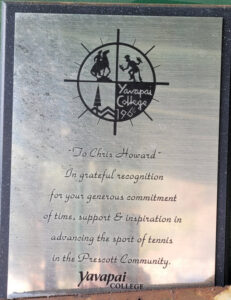
Yavapai Community College award to Mr. Chris Howard
Prescott Tennis icon Chris Howard was fired in March by Yavapai Community College. In an earlier posting, the Blog has covered the perceived reason behind the firing and the flavor of the outpouring of support for him at the April 11, 2023, College District Governing Board Meeting. However, along with other speakers, he was allowed only a single minute to address the District Governing Board.
At the request of the Blog, Mr. Howard has graciously shared the sketch of the speech he had prepared to give at that meeting. It is set out below. In addition, you may also view a clip of his speech, which was cut off at the April 11 Governing Board meeting by clicking here.
By Mr. Chris Howard
Most of you don’t really know me, to you I’m just the tennis guy who “used to” teach tennis at Yavapai College and been in the area a long time as such.
The “used to” part of that last sentence is sad, because over the 40 plus years I’ve been in the Prescott area I’ve probably had the most interaction with practically every tennis player, junior-adult & senior than anyone else.
Since in Prescott I’ve….
Worked with or for every Y.C. athletic director, every Prescott Parks and Rec Director, most local high school A.D.’s.
Been past President of the Yavapai Tennis Association and was one of 5 creators of the Prescott Area Tennis Association in 1993 and still a board member 30 years later.
Been writing a weekly tennis column in the Prescott Daily Courier for 30 years called, “My Point”. That’s over 1,500 columns about everything you can think about related to tennis.
Graduated from the Prescott Area Leadership Program in 1995 that Dr. Ron Barns started in 1990.
Started teaching at the Y.C. tennis facility in 1982, became an adjunct in 1996, maintained the courts from 1999 until 2014 with George Reynolds and his band of great volunteers. Helped raise the $200,000 the community partnered with the college in the rebuild of the facility, was a part of every planning meeting and have been the manager since that time.
I am a USPTA Elite Master tennis professional, which puts you in the top 10% of pro’s in the country with knowledge and experience.
As a player I still compete on a national level, and last year won a couple national titles and many SW events and for a while was ranked #1 in the nation in the 65 doubles.
Have worked in every type of tennis setting: 5 star resorts, tennis colleges, private clubs, country clubs, colleges, high schools, private courts and subdivisions.
Positions I’ve held range from club owner, Sports Director, Tennis director, multipurpose club manager, tennis professional, tennis camp director, high school and college coach, adjunct, professional tennis services, tournament director, racquet stringer and repair, etc. Been involved maintaining and building clubs and facilities from the ground up.
Managed up to 25 staff members at a time.
I have been on many boards over the years, donated time to our community in many various ways, run for City council, put my name in to fill in for County Supervisor Jack Smith when he stepped down and done my best to put Prescott tennis on the map to all ages and levels for 4 decades.
For me, tennis has been a passion, something I’ve always tried to do with putting my best foot forward, giving a lesson, playing in a tournament, teaching a tennis class, stringing a racquet, running a tournament, managing a tennis facility or building one.
It’s all about relationships, communication, following through with what you say you’ll do, continuity and most of the time a good demeanor and smile.
You try to look at the big picture and create a plan of action that lets the game of tennis grow in a positive manner.
That’s what I tried to do every day I’ve been at Yavapai College with everyone I’ve come in contact with.
We created something special here, even with a small 7 court facility. A place where everyone feels good to come, an easy way to make a reservation, to join a class, lesson or clinic.
Our tennis professionals are certified and covered with 8 million dollars of insurance, and they jell together like most communities would die to have.
The user fees and in house honor/computer system we have in place are more than enough to pay to maintain our tennis facility. Most colleges can’t make that claim.
My downfall has been that I cared maybe too much…
Since 2014 rebuild the college has locked the courts when it snowed until they were safe to play on again, which is a good idea. Unfortunately, they didn’t give the manager a key to be able to get in to clear the shaded areas when the courts could have been playable many times they were not.
Our facilities department needs to take care of the main campus and many times there is no one to come take care of the courts when they should and could very easily be reopened by getting rid of the slush before it refreezes again that night.
This has created a problem with many college classes being canceled, patrons not being able to get back on the courts and tennis professionals losing days of giving lessons.
Naturally that’s against everything I believe should happen when servicing our players and community. Since 2014 I have tried to get this policy changed, but to no avail.
The last try was an email/letter to have a meeting with my new dean and also with the Head of our Facilities Department. Once again they declined to have a meeting to talk and hopefully come to a better solution, which seems so simple. Let the manager help deal with it.
The “Closed Campus” aspect doesn’t work for the tennis manager. That person needs to see if the courts have a possibility of being open the next day. They need to let the college classes know, the patrons who have court time booked and the tennis professionals who have lessons.
Being made to feel like a criminal after years of good service can’t be right – not having a conversation to get on the same page, letting ideas flow and going with what makes the most sense.
I believe everyone here today can agree with that.
I am appealing to President Rhine to hopefully open the door to allow this proud but humble tennis servant to once again be of help at least teaching at Yavapai College, if not regain the position held previously which I always did to the best of my ability.

 Yavapai Community College has announced an open house recruiting and familiarization day will be held on Saturday, April 22 at Yavapai Community College’s Verde Valley Campus (601 Black Hills Drive, Clarkdale) from 9 to 11 a.m. The event is free and open to the public.
Yavapai Community College has announced an open house recruiting and familiarization day will be held on Saturday, April 22 at Yavapai Community College’s Verde Valley Campus (601 Black Hills Drive, Clarkdale) from 9 to 11 a.m. The event is free and open to the public.
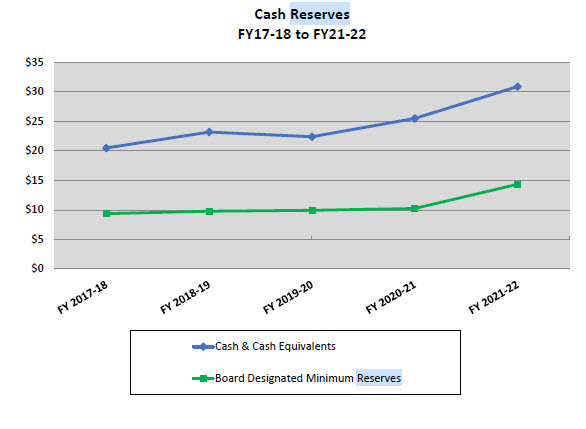
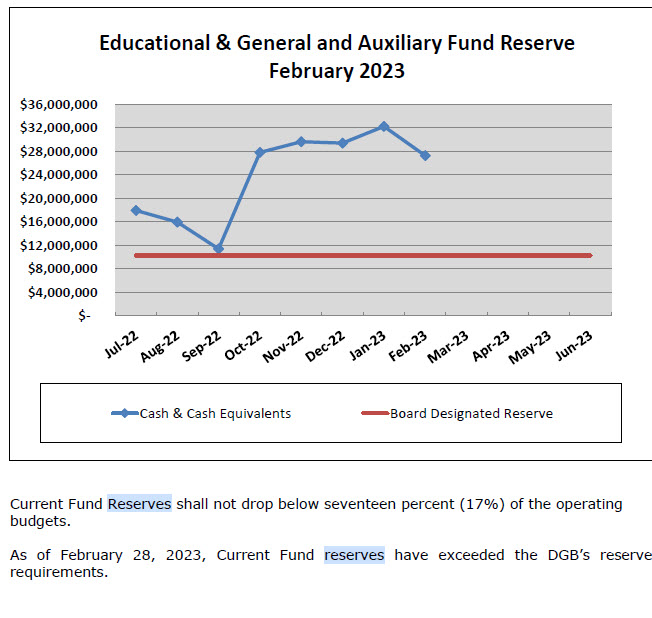
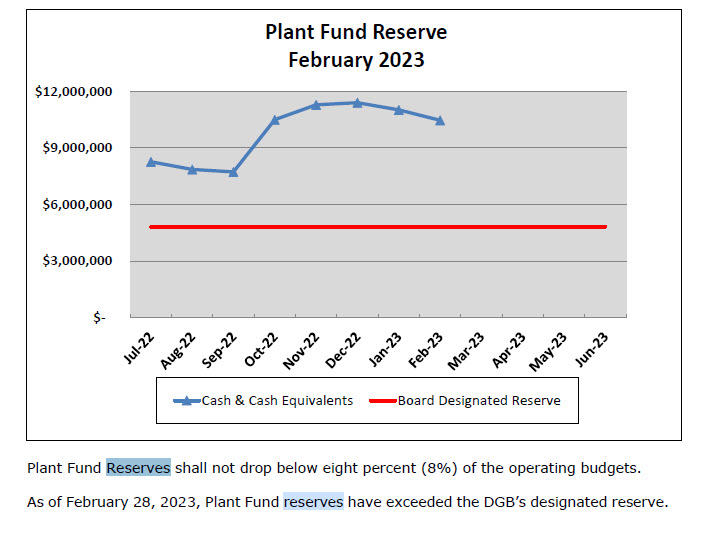
 Yavapai Community College has gone into the land purchasing business in a big way during the last few weeks. Recall that on February 24, 2023, the College District Governing Board held a two-hour closed door executive meeting focusing on purchasing land in Prescott Valley and leasing land in the Verde Valley. Following the session, the Board issued a vague statement in the form of a motion, unanimously approved, directly the staff to move as directed in the closed door session. The public was left in total darkness about what was happening.
Yavapai Community College has gone into the land purchasing business in a big way during the last few weeks. Recall that on February 24, 2023, the College District Governing Board held a two-hour closed door executive meeting focusing on purchasing land in Prescott Valley and leasing land in the Verde Valley. Following the session, the Board issued a vague statement in the form of a motion, unanimously approved, directly the staff to move as directed in the closed door session. The public was left in total darkness about what was happening.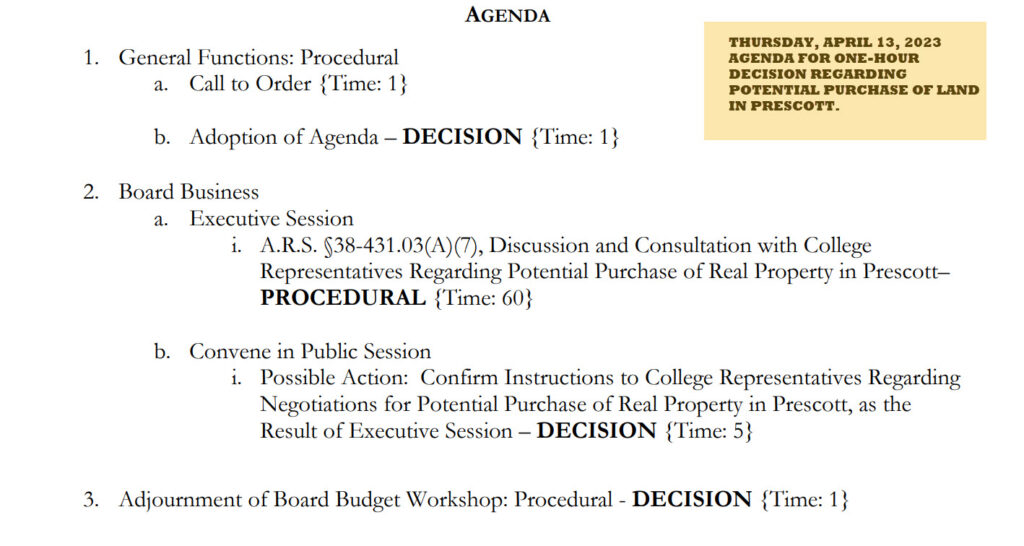
 Most of the proposed increase in the present budget was to cover a 9.4 percent increase in employee salaries and benefits plus a 102.2 percent increase in capital expenditures over 2022-23.
Most of the proposed increase in the present budget was to cover a 9.4 percent increase in employee salaries and benefits plus a 102.2 percent increase in capital expenditures over 2022-23. 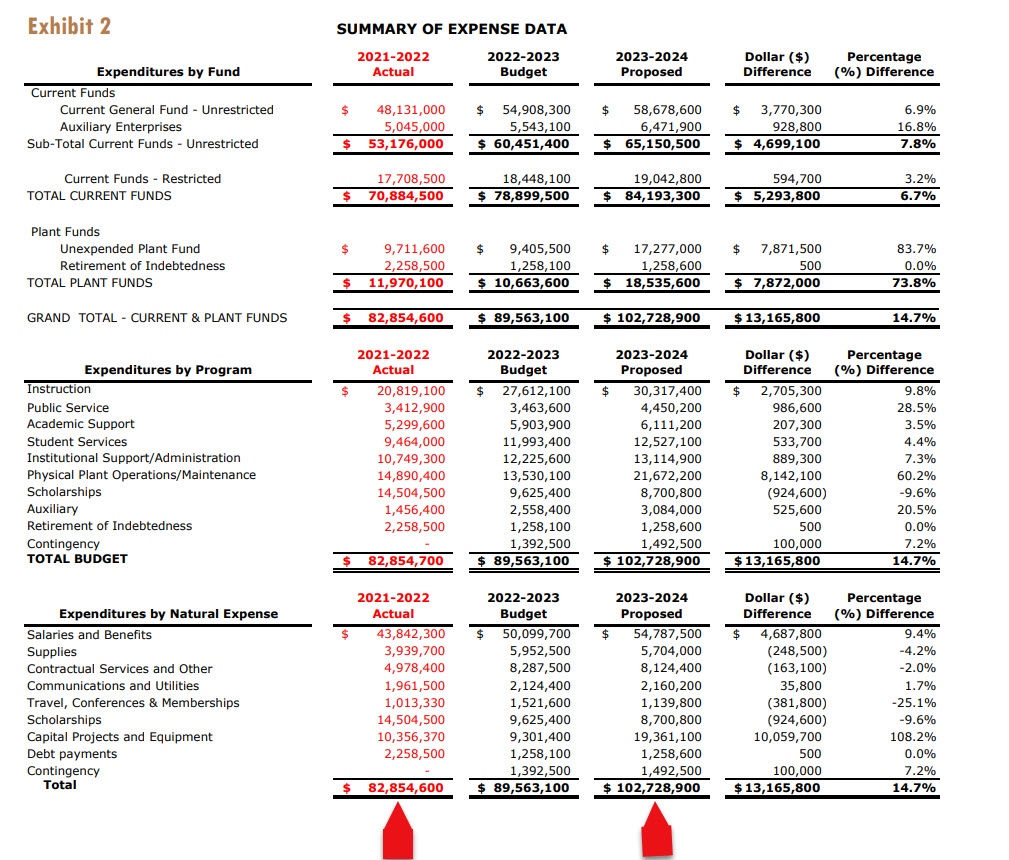
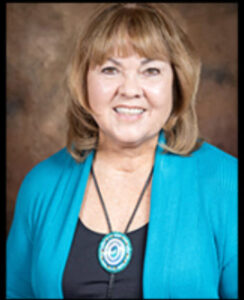
 including a demand that the Community College provide an annual accounting to the Third District about the exact amount of revenue it provides the Community College through the District’s contribution via state and federal revenue, County primary taxes, secondary property taxes, and new construction taxes. It has only vaguely and very reluctantly provided some partial information. In addition, the District Representatives have asked the College to provide an estimate of the tuition and government grants it receives because of the enrolled students in Sedona and the Verde Valley. It has received no information about that. And then, an understandable detailed financial explanation of what revenue received was reinvested in the Third District.
including a demand that the Community College provide an annual accounting to the Third District about the exact amount of revenue it provides the Community College through the District’s contribution via state and federal revenue, County primary taxes, secondary property taxes, and new construction taxes. It has only vaguely and very reluctantly provided some partial information. In addition, the District Representatives have asked the College to provide an estimate of the tuition and government grants it receives because of the enrolled students in Sedona and the Verde Valley. It has received no information about that. And then, an understandable detailed financial explanation of what revenue received was reinvested in the Third District. Yavapai Community College indicated at the March 2023 District Governing Board meeting that it will be seeking a 5% primary property tax rate increase in May of 2023. It will most likely argue that it needs more operating revenue, and the only available source appears at present to be Yavapai County residents’ primary property taxes.
Yavapai Community College indicated at the March 2023 District Governing Board meeting that it will be seeking a 5% primary property tax rate increase in May of 2023. It will most likely argue that it needs more operating revenue, and the only available source appears at present to be Yavapai County residents’ primary property taxes. 